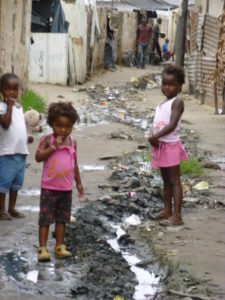Martin Gambrill ~ Addressing The Urban Sanitation Crisis: Time For A Radical Shift
No comments yetA successful city is economically and culturally vibrant, healthy, safe, clean and attractive to business and tourism, and provides quality of life to its citizens. This vision is appealing but remains hard to realize as developing cities have to cope with changing demographics and climate with limited financial and human resources. The sustainable development goals have given a new impetus for cities to be inclusive, safe, resilient and sustainable (SDG11), ensure citizens’ health and wellbeing (SDG3) and secure access to sustainable water and sanitation services (SDG6).
World Toilet Day on November 19th is the opportunity to remind ourselves of a few facts and propose a set of guiding principles for a renewed and revitalized urban sanitation agenda.
Many cities struggle to deal with the most basic municipal task of managing human excreta. Some are effectively “drowning” in human waste. Urban population growth continuously outpaces gains in improved sanitation access and, globally, Only 26% of urban excreta is deemed to be safely managed. The results? Environmental degradation, endemic disease leading to mortality and morbidity, especially among children, poor school attendance and performance, low productivity, constraints on the delivery of essential urban services such as housing, transport, safe water and drainage, and, ultimately, limits on economic growth and urban development. In short,
Read more: https://blogs.worldbank.org/water/addressing-urban-sanitation
You May Also Like
Comments
Leave a Reply







